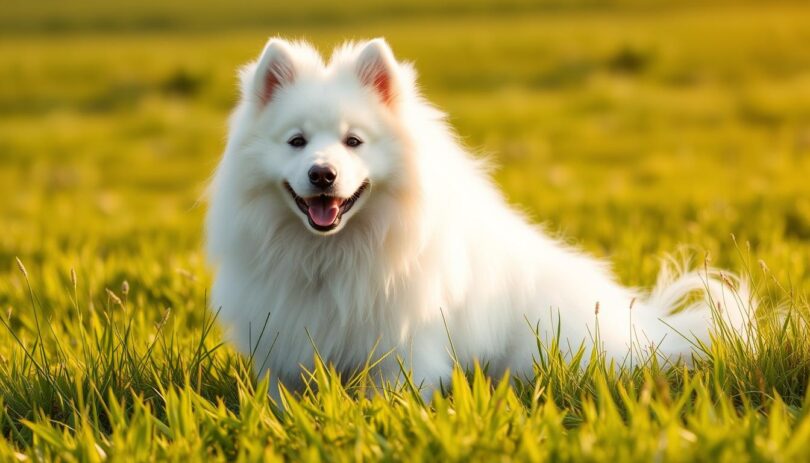Bringing home a new Samoyed puppy is an exciting journey, but it comes with its own set of challenges. These fluffy white companions, originally from Siberia, are known for their thick coats and friendly demeanor. Whether you’re a first-time owner or a seasoned pet parent, understanding how to care for your Samoyed is essential for their well-being.
Samoyeds are more than just their stunning appearance. Bred to pull sleds and herd reindeer, they possess a strong work ethic and a heart of gold. Their double-layered coat, consisting of guard hairs and a soft undercoat, requires regular grooming to prevent matting. This breed is also known for its unique “smiling” face and curled tail, features that have captured the hearts of many dog lovers.
While their friendly and social nature makes them excellent family dogs, Samoyeds do come with specific needs. Regular exercise, proper nutrition, and consistent grooming routines are just a few of the key areas to focus on. Additionally, being aware of common health issues such as hip dysplasia and eye conditions is crucial for ensuring your Samoyed lives a long, healthy life.
In this guide, we’ll cover everything from daily care routines to addressing potential health concerns. By the end of this article, you’ll be equipped with the knowledge to provide your Samoyed with the care they deserve. Whether you’re looking to learn more about grooming techniques or understand the best exercise routines, we’ve got you covered. Your journey to raising a happy and healthy Samoyed starts here.
For more fascinating insights into dog care and behavior, visit our resource on incredible dog facts to deepen your understanding of our canine companions.
Understanding the Samoyed Breed and Its Unique Traits
The Samoyed is a dog breed with a rich history and distinctive characteristics that make it a beloved companion. Originating from Siberia, Samoyeds were bred by the Nenets people to herd reindeer and pull sleds. Their thick, double-layered coat and robust build allowed them to thrive in harsh, snowy conditions. This heritage has shaped their physical and temperamental traits, making them both resilient and affectionate.
Origins, History, and Working Heritage
Samoyeds trace their lineage back to the Nenets Herding Laika, a group of dogs known for their endurance and herding skills. They were introduced to the West in the 18th and 19th centuries, quickly gaining popularity for their unique appearance and work ethic. The American Kennel Club (AKC) recognized the breed in 1906, further cementing their place in the world of dogs.
These dogs were integral to polar expeditions, showcasing their reliability and strength. Their role in sled pulling and herding demonstrates their adaptability and energy. The Samoyed’s coat, with its guard hairs and soft undercoat, is a testament to their Siberian roots, providing insulation in extreme cold.
Temperament and Family Compatibility
Known for their “smiling” face and curled tail, Samoyeds are friendly and social. They make excellent family dogs due to their gentle nature and patience with children. Their loyalty and outgoing personalities make them great companions for active families.
However, their heritage also brings some health considerations. Samoyeds can be prone to hip dysplasia, a common issue in larger breeds. Regular veterinary check-ups and a healthy lifestyle can help manage such conditions.
For more insights into caring for your Samoyed, visit our guide onmini Goldendoodle carefor additional tips on raising a happy and healthy dog.
Essential Daily Care and Grooming Routines
Proper grooming is vital for maintaining your dog’s health and appearance. A well-structured routine ensures your furry friend stays happy and comfortable.
Brushing, Bathing, and Coat Maintenance
Daily brushing is essential for managing your dog’s thick coat. Use a pin brush and a rake to gently remove loose fur and prevent matting. This helps distribute skin oils, keeping the coat healthy and shiny.
Bathing should be done 3-4 times a year. Over-bathing can strip natural oils, so use a mild shampoo. Always brush before bathing to prevent tangles.
Nail Trimming, Ear Checks, and Dental Care
Trim nails every 4-6 weeks to prevent overgrowth. Check ears weekly for signs of infection and clean gently with a vet-approved solution.
Daily dental care is crucial. Brush teeth with a dog-specific toothpaste to prevent tartar buildup and promote fresh breath.
Regular grooming not only enhances appearance but also strengthens the bond with your dog, reducing stress and detecting potential health issues early.
Samoyed Puppy Training and Socialization Tips
Training and socializing your Samoyed puppy is crucial for their development into a well-behaved and confident adult dog. With their intelligent and sometimes strong-willed nature, consistent training and positive reinforcement are key to fostering good behavior.
Early Training Strategies for a Well-Behaved Pet
Start with short, positive training sessions using treats and praise to keep your puppy engaged. Teach basic commands like “sit” and “stay” to establish a strong foundation. Consistency is vital—use the same commands every time to avoid confusion. For professional guidance, consider enrolling your puppy in training classes or using online programs like SpiritDog’s, which have high success rates for effective training outcomes.
Regular exercise also plays a significant role in reinforcing training. Aim for about 60 to 90 minutes of activity daily, which can include walks, playtime, and interactive games. This helps manage your puppy’s high energy levels and keeps them focused during sessions.
Effective Socialization with Family and Other Pets
Socialization is critical during the first 16 weeks of your puppy’s life. Introduce them to various environments, people, and other animals to help them develop good behavior. Puppy socialization classes are an excellent way to provide structured interaction, reducing the risk of behavioral issues later on. For more expert advice on training, visit our complete guide to puppy training.
Remember, socialization should continue throughout your dog’s life to prevent anxiety or fear in new situations. With patience and consistent training, you’ll raise a well-balanced, happy pet that thrives in any environment.
Health, Nutrition, and Exercise Guidelines
Maintaining your dog’s health involves a balance of proper nutrition, regular exercise, and preventive care. Samoyeds, with their active nature, require a diet rich in high-quality protein to support their energy levels and coat health. Look for dog food that meets AAFCO standards, ensuring it’s suitable for their life stage—puppy, adult, or senior.
Diet Recommendations and Nutritional Tips
A well-balanced diet is crucial for your Samoyed’s overall health. High-quality dog food with essential nutrients supports their active lifestyle and prevents health issues. Supplements like glucosamine and omega-3 fatty acids can help maintain joint health and reduce inflammation, which is especially important for breeds prone to hip dysplasia.
Exercise Routines and Preventive Health Measures
Regular exercise is vital for Samoyeds. Aim for at least 60-90 minutes of activity daily, including walks, playtime, and off-leash adventures in safe areas. Seasonal adjustments are necessary—shorter, more frequent sessions in heat and longer, more vigorous workouts in cooler weather. Preventive care includes regular vet checkups, DNA testing for genetic diseases, and monitoring for early signs of heart conditions or dysplasia.
By combining proper nutrition, consistent exercise, and regular health checks, you can help your Samoyed live a long, happy life. Always consult with your vet to tailor these guidelines to your dog’s specific needs.
Final Insights for a Fulfilling Samoyed Lifestyle
Caring for a Samoyed is a rewarding journey that requires attention to their unique needs. By focusing on regular grooming, balanced nutrition, and consistent training, you can ensure your dog leads a happy and healthy life. Understanding their heritage and adapting your care routines accordingly will strengthen your bond and support their well-being.
Remember, preventive health measures like regular vet visits and monitoring for common issues are crucial. Stay connected with breeders and vets for personalized advice. Adapting your routines to suit your dog’s needs will promote lasting health and happiness. For more insights, visit our guide on Golden Retriever care to explore similar tips and expert advice.
With patience and the right approach, you’ll create a fulfilling lifestyle for both you and your furry companion. Happy pet parenting!
FAQ
How often should I groom my Samoyed’s coat?
Regular grooming is essential for maintaining the Samoyed’s thick undercoat. Aim to brush their fur daily to prevent matting and tangling, and bathe them every 2-3 months unless they get particularly dirty. This routine will keep their coat healthy and shiny.
Are Samoyeds prone to any specific health issues?
Yes, Samoyeds can be prone to hip dysplasia and certain eye conditions. Regular veterinary check-ups and DNA testing can help identify these issues early, ensuring your pet receives the best care possible.
How much exercise does a Samoyed need daily?
Samoyeds are active dogs and require at least 30 minutes of exercise each day. This can include walks, playtime, or even sled-pulling in snowy weather, which they particularly enjoy due to their heritage.










Leave a Comment